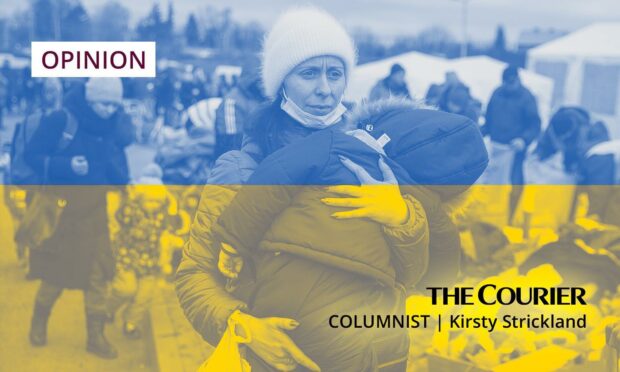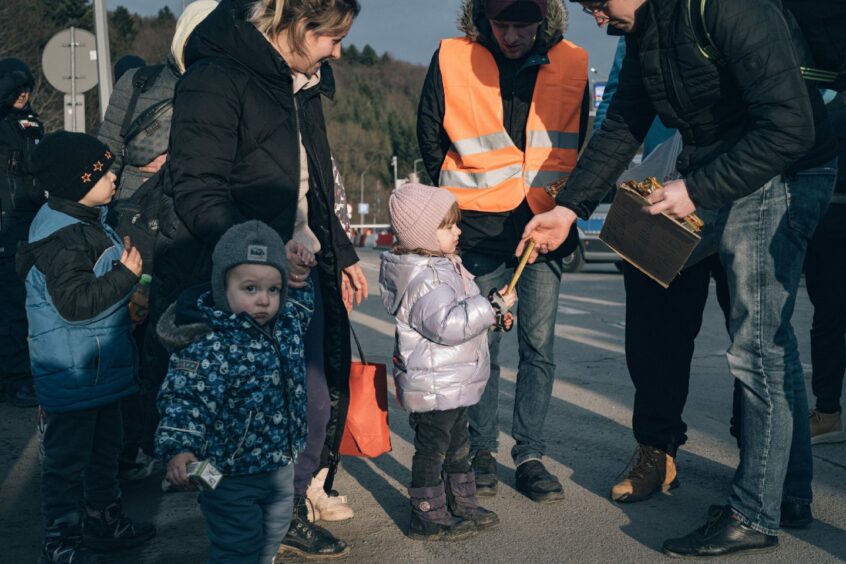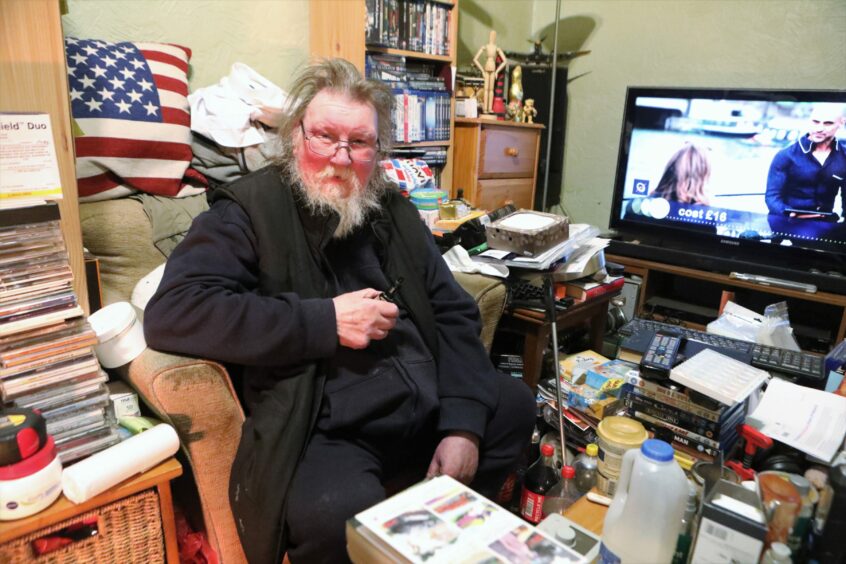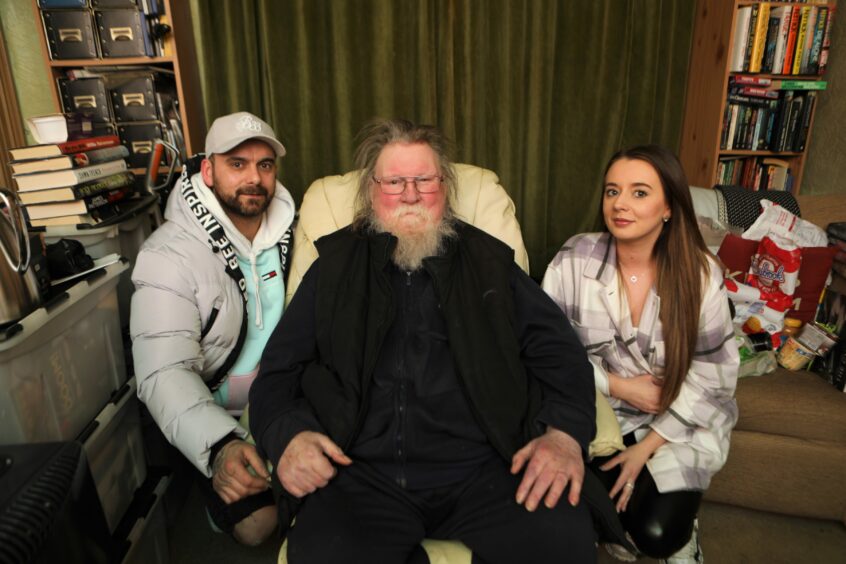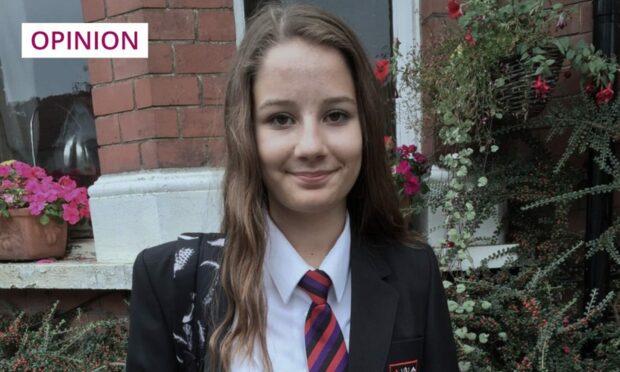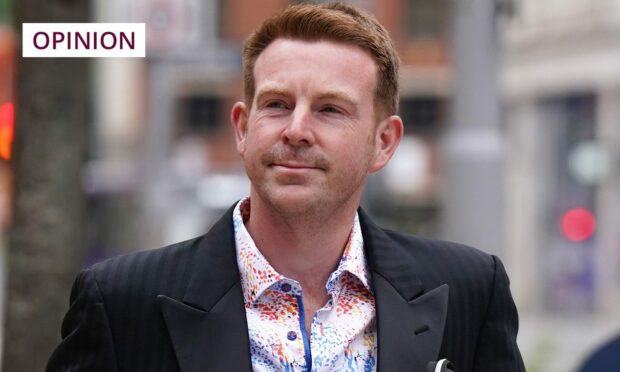Despair is a feeling that comes easily these days. And there is so much to be sad about and fearful of.
President Putin’s brutal invasion of Ukraine has captured the world’s attention.
We can’t look away from the plight of all those who have been displaced from their homes, forced to flee, or obliged to stay and fight.
Nor should we.
But amid the dire warnings and terrifying predictions about how this conflict could play out, there have been acts of altruism and solidarity that remind us of the goodness all around us.
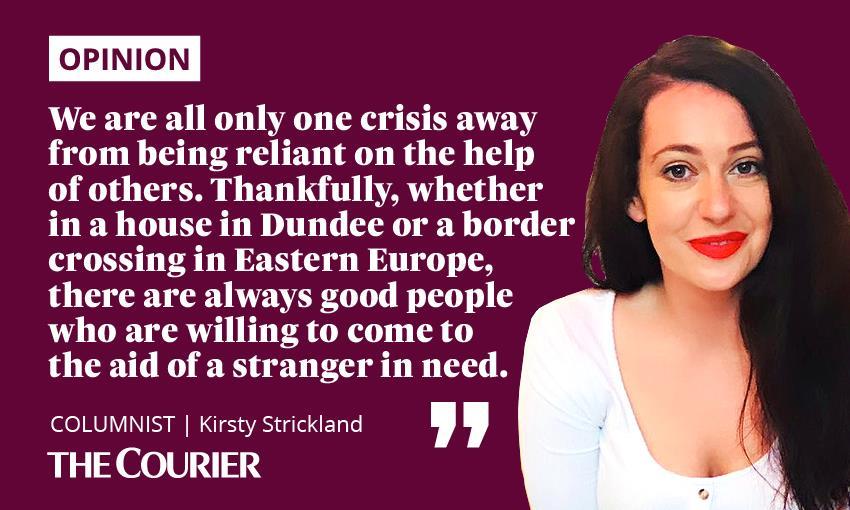
The Polish government has promised a warm welcome to Ukrainian refugees and more than 100,000 have already made the crossing.
The response of Polish citizens is more notable still. They have mobilised at border crossings to help the new arrivals with clothing, food, and offers of accommodation and transportation.
We’ve seen videos of fleeing families: frightened and weary children being offered chocolate and soft toys by strangers as they arrive.
Collections are under way across Scotland today and aid is being packaged up ready to send to where it’s needed most.
Drop-off points have been set up across Tayside and Fife and volunteers say they have been overwhelmed by the volume of donations.
Look for the helpers – it’s human instinct
That instinct to comfort and aid those in need is a very human one.
So it shouldn’t be that striking, but it is. Partly because of the events that necessitate it.
When we see high-profile acts of mindless cruelty and violence it can be so easy to forget that brutal men like Vladimir Putin are actually the exception, not the rule.
Fair play to these young stars for organising the collection in Dundee for #Ukraine 🇺🇦
Dundee City Cooncil aided with collections and transit 👏
Thanks to pals that donated, we got new sleeping bags, loads of charity shop woolies for young and old, and mountains o essentials❤️ pic.twitter.com/rs7NbW0tOl
— Alistair Heather (@Historic_Ally) February 28, 2022
Most people are kind and good.
I’m not talking about those who live a saintly life or pledge all of their time and resources to the benefit of others.
Quiet, ordinary kindness is more than enough.
And we have it in abundance.
Acts of kindness closer to home
I was watching these scenes of solidarity in Poland play out across the news channels as I read The Courier’s piece on Dundee pensioner Paul Whamond.
After losing his wife and son within months of each other six years ago, Mr Whamond struggled to cope.
Consumed by grief, he became depressed and everyday tasks became impossible for him to manage.
His house fell into a state of disrepair, with no heating, water or electricity but he eventually found help through the kindness of a stranger.
When gas engineer Steven Stewart visited Mr Whamond’s home to install a new boiler, he was stunned at the conditions he was living in.
Once the job was completed, he wanted to help Mr Whamond get back on his feet.
Along with his partner Kayleigh, Steve set up a fundraising page to help pay for the repairs that would make Mr Whamond’s house safe and habitable again.
This is both lovely and incredibly sad.
Heartbroken Dundee widower living in squalor has life transformed by kind strangers… https://t.co/ugeer0k2aD via @thecourieruk
— Kirsty Strickland (@KirstyStricklan) February 27, 2022
At the time of writing, the couple have raised £3,480 of their £6,000 target.
Some tradesmen have also offered free labour to help with the repairs.
The kindness of Steve and Kayleigh towards a stranger will have a ripple effect, as all acts of goodness do.
Steve could have decided to walk away once he’d installed Mr Whamond’s boiler but he didn’t.
He stayed to help.
And now many more people want to do their bit to help Mr Whamond too.
We are all only one crisis away from being reliant on the help of others.
Thankfully, whether in a house in Dundee or a border crossing in Eastern Europe, there are always good people who are willing to come to the aid of a stranger in need.
‘Look for the helpers’ holds true today
Whenever the world is beset by tragedy and loss, there is a quote that does the rounds on social media.
It’s by Fred Rogers, an American TV host who created and presented an educational show for kids, Mister Rogers’ Neighbourhood, which ran for 33 years.
He said: “When I was a boy and I would see scary things in the news, my mother would say to me, ‘Look for the helpers. You will always find people who are helping. To this day, especially in times of disaster, I remember my mother’s words and I am always comforted by realising that there are still so many helpers – so many caring people in this world’.”
I’ve found this sentiment hugely useful in the past week, as I’ve tried to explain to my daughter what is happening in Ukraine in an honest and age-appropriate way.
I think it’s important for young people to have some understanding of important world events but I don’t want to upset or worry her unnecessarily.
“Look for the helpers” works because it offers hope in situations that seem hopeless.
It reminds us, during times when it would be so easy to forget, that there is more goodness out there than bad.
Good people and good things rarely make headlines, but they do make a tangible difference.
